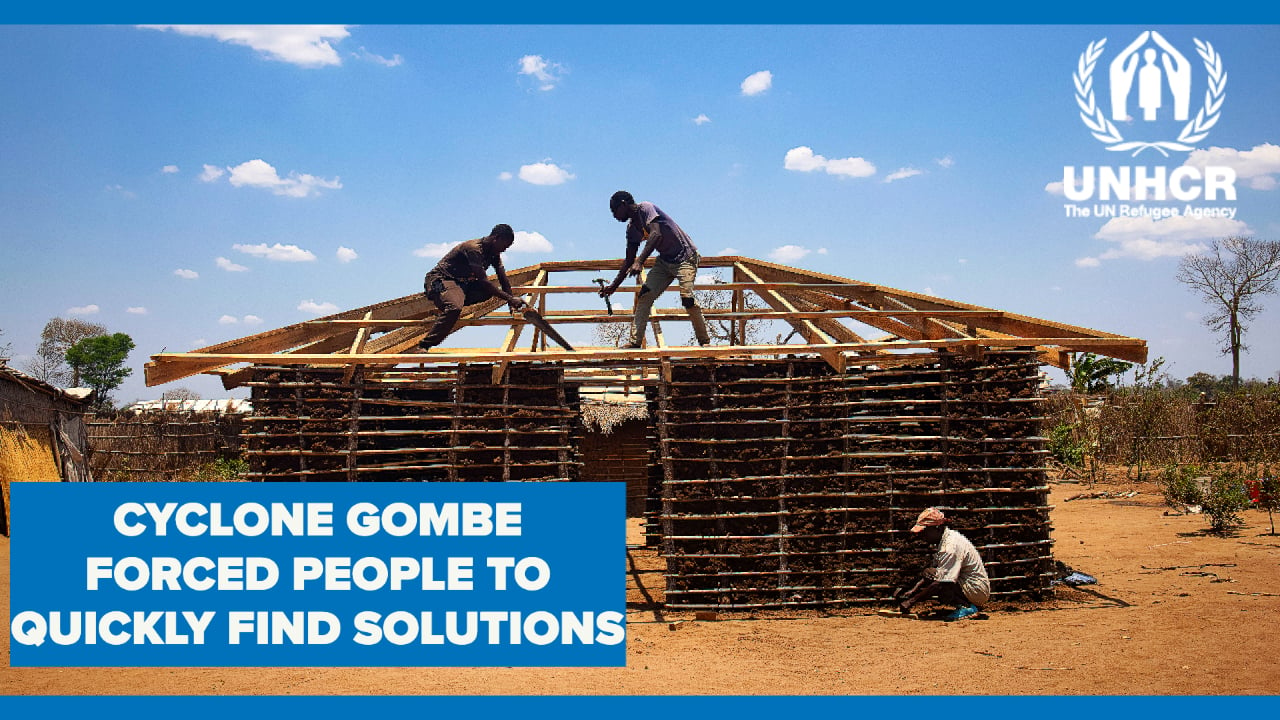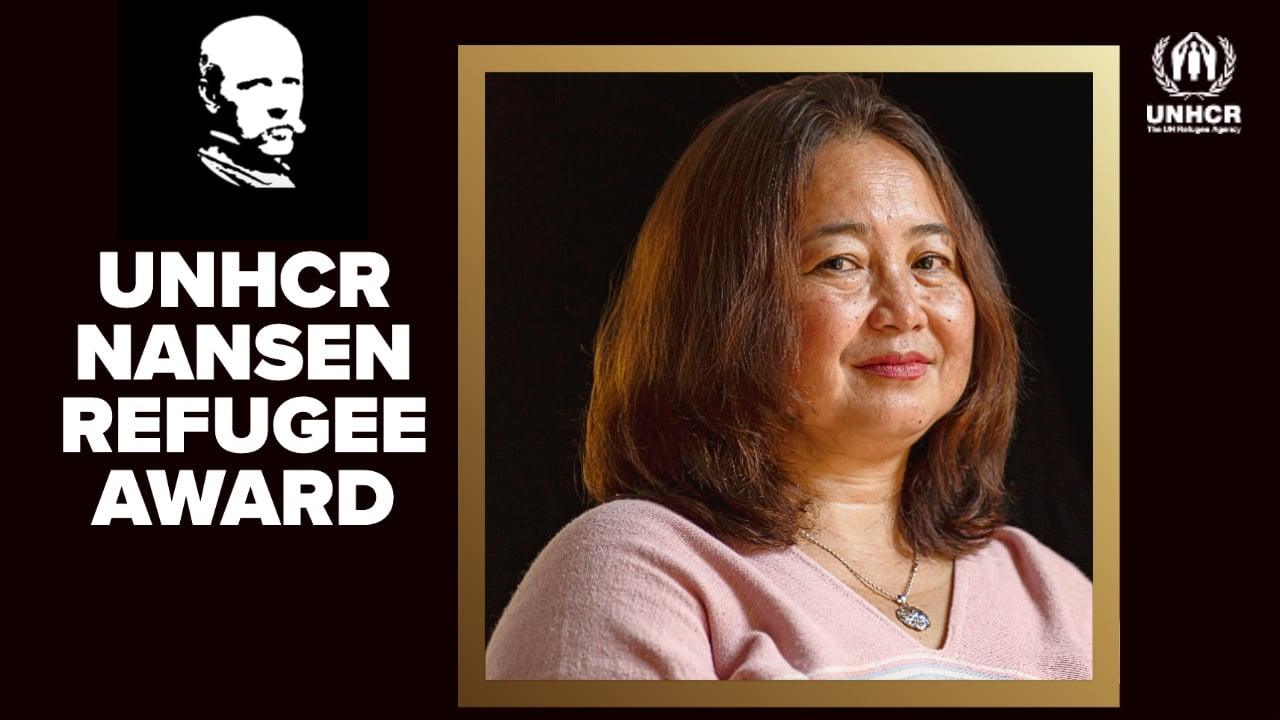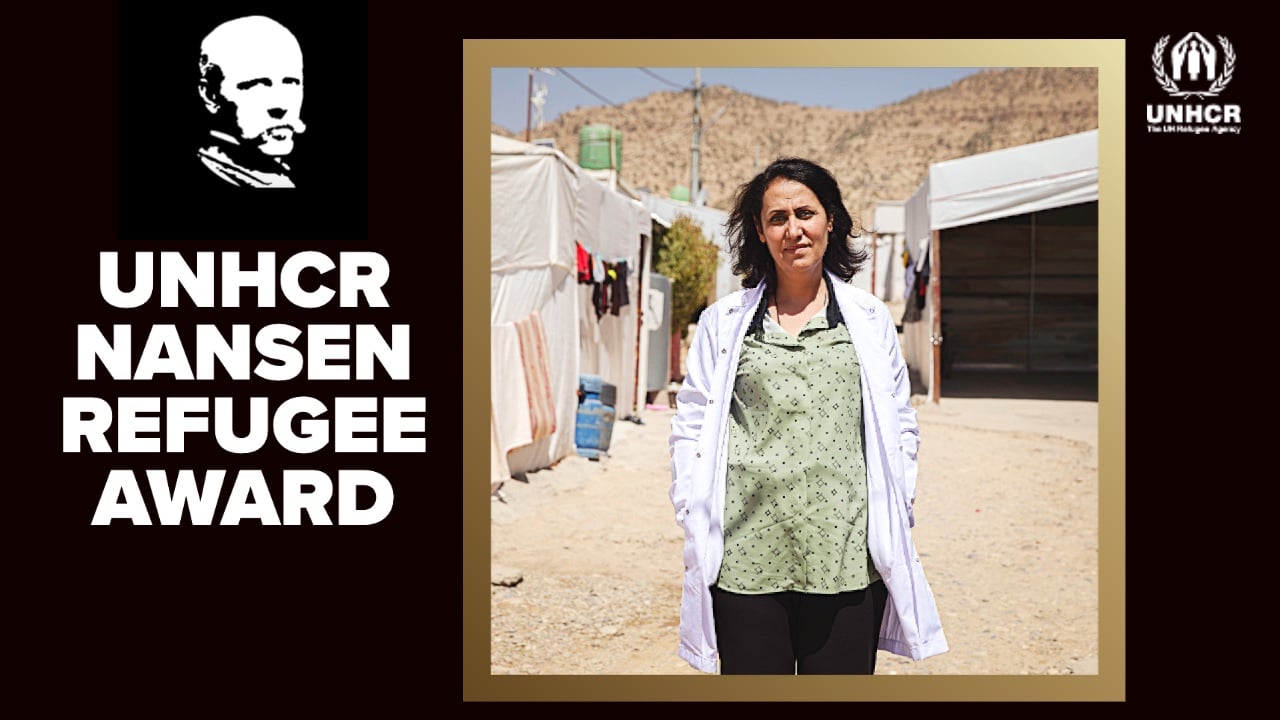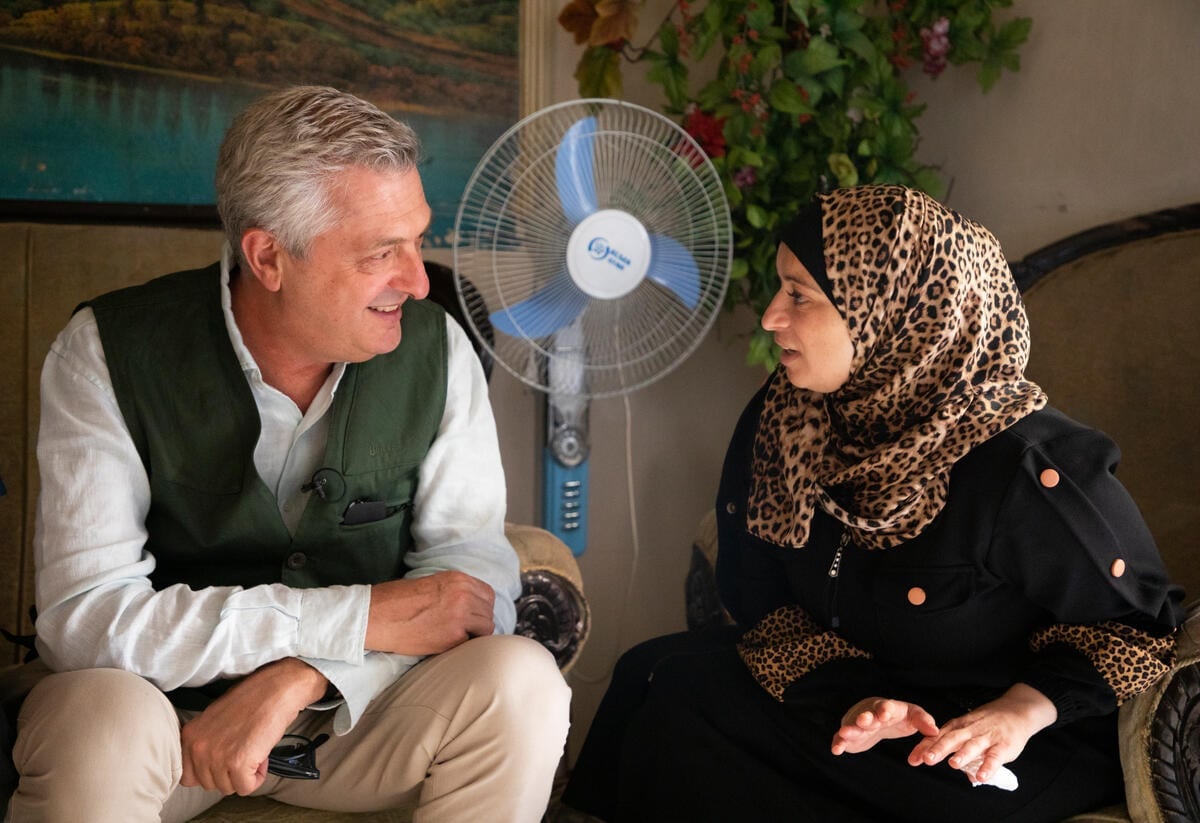UNHCR appeals for new funds for more than 1.7 million displaced Pakistanis
UNHCR appeals for new funds for more than 1.7 million displaced Pakistanis

JALOZAI CAMP, North West Pakistan, May 22 (UNHCR) - When the Pakistani army launched an offensive against militants near Said's small mountainside village, the 20-year-old factory worker thought the rocket fire and fighting near his home wouldn't last long.
"We thought the situation would get better in two or three days," he says. "But it did not." So last weekend Said and his family gave up hope and fled across the mountain to Jalozai Camp where they now sit waiting for peace to return.
Jalozai is one of 26 camps in North West Pakistan, 15 of which were set up in the past month alone, many of them with help from UNHCR, to provide shelter to hundreds of thousands of people left homeless by the conflict . As of Friday, local authorities had registered more than 1.7 million people displaced by the fighting in and around Swat since 2 May. About 200,000 of those displaced are living in camps like Jalozai, The rest are living with friends or relatives or in communal buildings such as schools.
Most have lost homes and most of their belongings, fleeing with nothing more than what they were wearing at the time. With the onset of summer, men, women and especially children are suffering from heat-related skin infections as well as water-borne diseases.
Many are suffering from traumatic stress as well. One woman said she stuffed cotton wool into her children's ears during the shelling to try to calm them down. Another was so alarmed by the fighting that she left one child behind when she fled, only to return a short time later when she realized her horrible mistake.
UNHCR's main role in a joint UN effort to provide shelter and other relief supplies, provide technical help in setting up and coordinating camps and assist local authorities with the registration of the displaced people.
Because of the new displacement, the UN in Islamabad Friday raised its joint appeal for funds to take care of the displaced ten-fold to $543,172, 583, of which less than $88,524,302 has thus far been committed. The UN urgently called for contributions for the remaining $454,648,281 "to help the most vulnerable and worst affected people through the end of 2009." UNHCR, for its part, called for a further $84 million for its operations in North-West Pakistan through the end of 2009.
In an attempt to alleviate the heat in the camps, which routinely reaches 45 degrees C., UNHCR is working to provide more shade above tents. The displaced people are particularly suffering from the heat because they come from much cooler climates in Swat Valley. UNHCR is planning separate communal shelters - "cool rooms" -- for men and women with electricity and fans to provide some respite. UNHCR is also installing screens around living tents to provide women with more privacy.
UNCHR is also building individual and communal kitchens in the camps so displaced people can cook for themselves with provided fuel and food rations, instead of relying on cooked meals supplied by the government
UNCHR this week began distributing basic relief supplies such as plastic sheeting and cooking sets to the great majority of displaced people who live outside the camps.
For the most part, however, the displaced people in schools are relying on the generosity of the local Pakistani community. Many families living nearby are bringing them food and clothing.
At the same time, spontaneous settlements keep appearing, especially in Mardan and Swabi districts. The Relief Bank established by UNHCR in Nowshera of the North West Frontier Province is now receiving privately donated goods such as fans and summer clothing. UNCHR still urgently requires pillows, soap, simple water coolers and bed sheets.
For displaced people like Said, the help from locals and from the international community is welcome, although ideally he would still prefer to go back to his village.
"Before we fled," Said says, "I was in a factory from 8 a.m. to 8 p.m. Here I do nothing. We want to be in our villages. But we won't go back until it is safe."
By Ariane Rummery and Hélène Caux in Pakistan









